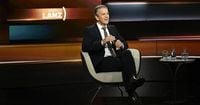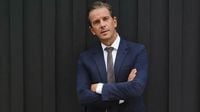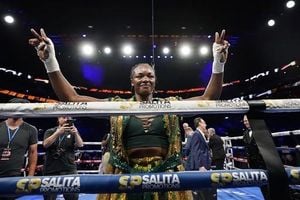On Thursday, May 8, 2025, the popular ZDF talk show "Markus Lanz" will focus on the 80th anniversary of the end of World War II. The episode promises a rich discussion featuring three notable guests, each bringing unique perspectives on historical and current events.
The first guest, Ruth Winkelmann, is a 96-year-old eyewitness who will recount her experiences during the last days of the war in Berlin. As the daughter of a Jewish father and a Christian mother, Winkelmann's story is particularly poignant. She had to go into hiding with her mother starting in 1942 after her father was murdered in Auschwitz. Her memories of the dramatic final days of the war, as the Red Army invaded Berlin, serve as a valuable testament to history. "I survived by hiding in a garden shed, and I remember the fear and uncertainty of those days vividly," Winkelmann reflects.
Joining her will be Harald Jähner, a bestselling author and expert on post-war history and the Weimar Republic. He will discuss the democratization of the German population following the war's end in May 1945. Jähner's insights are especially relevant as Germany continues to grapple with its historical legacy and the lessons that can be drawn from it. "The end of the war was not just a cessation of hostilities but the beginning of a complex process of rebuilding democracy in Germany," he notes.
The third guest, Jason Stanley, a philosopher and expert on fascism, has made headlines recently by resigning from his professorship at Yale University to move to Canada, citing the influence of former President Donald Trump on American politics. Stanley argues that current U.S. politics exhibits fascist characteristics, a claim that has sparked significant debate. "We must examine the erosion of democratic norms and the rise of authoritarianism in our political landscape," he asserts. His perspective will undoubtedly contribute to a lively discussion on the parallels between past and present political climates.
The show will air at 23:15, slightly delayed due to the Pope's election, and will be available for streaming on the ZDF media library shortly after the live broadcast. This episode promises to not only reflect on historical events but also to connect them to contemporary issues, making it a significant watch for those interested in the intersections of history and politics.
Since its premiere in 2008, "Markus Lanz" has established itself as a staple of the ZDF programming, airing three times a week and consistently drawing in large audiences. The show reached a market share of 15.2 percent last year, up from 14.3 percent the previous year, demonstrating its enduring popularity. In addition, it achieved a record 3.0 percent of the viewing volume of all on-demand videos in the ZDF media library.
Markus Lanz, the show's host, has been a prominent figure in German television for nearly three decades. Known for his skillful interviewing style, he engages guests from various fields including politics, culture, and science. "What we do in the studio is craft. Someone says something, and I try to confirm or argue against it," Lanz explained in a past interview. He aims to provide substantial insights and foster understanding among viewers.
As the show continues to evolve, the focus has shifted more towards political discussions, especially since the COVID-19 pandemic began. This shift raises questions about the impact on Germany's debate culture. Some critics argue that the show risks oversimplifying complex issues or engaging in repetitive criticisms of political figures like Trump. However, supporters appreciate the depth of conversation that often arises from these discussions.
In summary, the May 8 episode of "Markus Lanz" will be a significant event, featuring personal stories that resonate with historical significance and contemporary relevance. With Winkelmann's firsthand account, Jähner's historical analysis, and Stanley's provocative insights, viewers can expect a thought-provoking evening that bridges the past with the present.
For those who miss the live broadcast, episodes are typically available for streaming in the ZDF media library shortly after airing, allowing audiences to catch up on insightful discussions at their convenience. Upcoming episodes are scheduled for May 13 and 14, 2025, ensuring that viewers have plenty of opportunities to engage with the topics that matter most.





